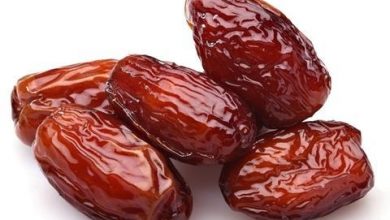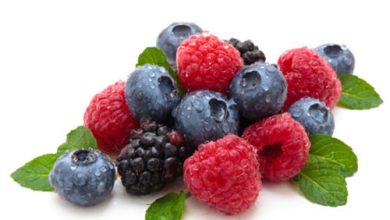
Watercress benefits for men

Watercress
Watercress is a leafy green vegetable growing in moist soil and near water sources. It is famous in the Arab world and around the world where it is eaten raw and used in the preparation of many salads. He picks before his pink buds appear, and the leafy part is eaten. Watercress has many health benefits; it is rich in vitamin C, fiber, carotenoids, flavonoids, and glucosinolates;
The last three are antioxidants and very beneficial for the body’s cells and cells. Watercress was also known by the ancient Egyptians and Romans as medicine of love; it is aphrodisiac, hence the benefit of men.
Nutrients in watercress
The following table shows the content of 40 g or the equivalent of two cups of watercress essential nutrients:
| Nutritional component | the value |
|---|---|
| Water | 36.68 g |
| Energy | 10 calories |
| Protein | 1.03 g |
| Fat | 0.26 g |
| Carbohydrates | 1.46 g |
| Dietary fiber | 0.6 g |
| Total sugars | 0.82 g |
| Calcium | 64 mg |
| Iron | 0.58 mg |
| Magnesium | 19 mg |
| Phosphorus | 21 mg |
| Potassium | 148 mg |
| Sodium | 11 mg |
| Zinc | 0.19 mg |
| Vitamin C | 6 mg |
| Thiamine | 0.018 mg |
| Riboflavin | 0.034 mg |
| Niacin | 0.122 mg |
| Vitamin B6 | 0.029 mg |
| Folate | 39 micrograms |
| Vitamin B12 | 0 mcg |
| Vitamin A | 949 IU, or 48 micrograms |
| Vitamin E (alpha-tocopherol) | 0.17 mg |
| Vitamin D | 0 IU |
| Vitamin K | 43.4 mg |
| Caffeine | 0 mg |
| Cholesterol | 0 mg |
Watercress benefits for men
Watercress is famous for its many benefits, especially those of men since ancient times:
A. Male reproductive health
Watercress has a male-stimulating property; it has a role in stimulating the production of steroid hormones in the testicles that improve the efficiency of the prepuce gland, as well as increasing the production of the testicles for sperm.
Today, studies point to the role of watercress seeds and leaves in treating and improving sexual dysfunction, including erectile dysfunction or impotence, poor ejaculation, and hypogonadism. The compounds in the watercress plant help physiologically increase blood flow to the genital area. Neurologically, they cross the blood-brain barrier and mimic or stimulate some areas of the central nervous system’s sexual arousal.
B. Improve reproductive capacity
The ability of watercress to increase sperm count and male gland health increases the chances of vaccination and improves the reproductive capacity of men. In a study at Salman bin Abdulaziz University in Saudi Arabia, watercress was found to have a protective effect against the damage to the testicles in diabetics. Therefore, the study suggests that watercress intake in the form of a salad may be beneficial for diabetics to reduce the deterioration of reproductive capacity.
C. Smokers
In a study conducted in mice, watercress seed oil was found to have a protective role for the damage caused by smoking on the testicles by reversing almost all phenotypic and histological changes in the testis caused by exposure to nicotine, which adversely affects the number and movement of sperm, On fertilization.
General benefits of watercress
Watercress, like other vegetables, is rich in vitamins and nutrients that are important to human health:
A. Slimming
The introduction of watercress as a salad and next to meals can help you lose weight since it contains very low amounts of calories. According to the USDA database, every 100 grams of watercress contains only 25 calories, so watercress is considered one of the least vegetables containing calories. A calorie is a low-fat vegetable and cholesterol. Although it is low in calories, it contains a large number of vitamins and minerals. According to the US database, two cups of watercress contain 20% of the daily requirement of vitamin A, more than 50% of the daily requirement of vitamin K and 8% of the daily requirement of vitamin C, folic acid and calcium. It is also a diuretic, so it works to flush out excess fluids out of the body.
B. Diabetics
Watercress contains a small number of sugars, so it is a portion of good food for diabetics. It does not raise blood sugar levels and slow down the absorption of sugars in the stomach because it contains a large proportion of soluble fiber that helps reduce the absorption of carbohydrates from the intestines. Eating watercress regulates digestion and thus helps keep your blood sugar level steady.
In a study conducted in mice, watercress oil was found to have a role in the resistance to oxidation associated with diabetes because it contains antioxidants. Another study showed that watercress can contribute to solving the problems of high blood sugar in diabetics and maintain its levels.
C. skin
Watercress seeds have been used in traditional medicine in the Middle East to treat skin diseases because of their anti-inflammatory properties and to treat skin diseases such as psoriasis.
Watercress can help to cleanse burns with a topical form of flesh (a cloth on which the affected area is covered) to protect burns from infections. Watercress contains a range of vitamins and plant compounds that are important for maintaining healthy skin. It is rich in vitamin A, which is necessary to regenerate and repair skin tissue, and vitamin C, which can help in the production of collagen and reduce wrinkles.
Vitamin C, flavonoids and antioxidants in watercress help prevent skin cancer.
Watercress extract has been found to be effective in improving skin function as a barrier, eczema, and skin infections.
Watercress oil also has antimicrobial properties, so it is involved in the manufacture of antimicrobial creams.
D. Digestive
Watercress benefits the digestive system as a repellent and helps relieve abdominal pain and improve digestion. Greer leaf extract can protect the mucous membrane of the stomach from ulcers in the stomach wall.
It has been used to treat liver disease and intestinal disorders. Watercress extract and leaves have shown protective properties against liver cancer.
Watercress improves digestion because it contains a large amount of vitamin C and some fibers that stimulate the secretion of salivary glands, and helps the intestines to digest properly and thus maintain the health of the colon.
E. Kidney
Watercress seeds have been found to have anti-oxidant and kidney protective properties against toxic damage to the kidneys, and watercress is a natural diuretic that helps cleanse and maintain the kidneys.
F. Thyroid
Watercress improves thyroid function and reduces many of its symptoms;
Researchers at the University of Baghdad have recommended that watercress and parsley be used in combination with thyroid medications to achieve the most effective treatment for thyroid disorders.
G. Heart and arteries
Watercress regulates cholesterol levels in blood pressure and can help regulate blood pressure and reduce high blood pressure, thus preventing cardiovascular disease.
H. Disease prevention
Watercress is rich in phenolic compounds and antioxidants. These compounds bind to free radicals, so watercress is seen as a good protective and therapeutic candidate for various diseases caused by free radicals such as cancer, skin cancer, and cancer.
Watercress is rich in phenolic compounds and antioxidants. These compounds bind to free radicals, so watercress is seen as a good protective and therapeutic candidate for various diseases caused by free radicals such as cancer, skin cancer, and cancer.
Agriculture
Pesticides and natural fertilizers have recently gained attention, especially those based on plant extracts, as scientists are looking for non-toxic alternatives that do not affect crops.
Watercress has a promising role in its use in the synthetic chemical pesticide shop because of its antimicrobial properties.
Side effects of watercress
Watercress is an edible and safe plant, with no toxicity reported.
However, the only fear of exposure to bacterial infection if not washed well with water, especially in pregnant women and people with low immunity.
Watercress is high in nitrate, and you should consult your doctor about starting a high nitrate diet on cardiovascular patients or related factors;
Because it may interact with certain medications, such as organic nitrates (nitroglycerin), or drugs used for angina pectoris containing nitrite.
A summary of the benefits of watercress
Help lose weight.
Prevents vitamin C deficiency.
Maintaining blood sugar levels.
Keep skin healthy, reduce wrinkles, moisturize and moisturize the skin.
Antimicrobial.
Protects against stomach ulcers.
Treatment of liver disease and intestinal disorders.
Protect and disinfect kidneys.
It regulates digestion.
Improve thyroid function.
Prevention of chronic diseases such as heart disease,
And cancer.
Maintain the health of the male reproductive system.
Treatment of sexual dysfunction.
Note: Watercress benefits for men are not a medical reference, please see your doctor.



